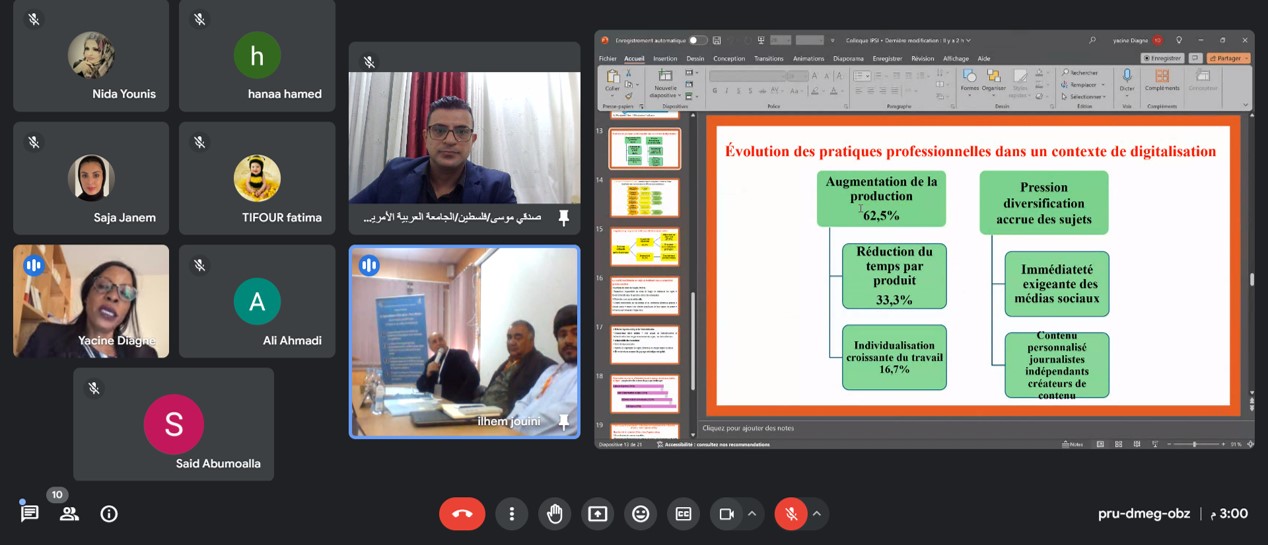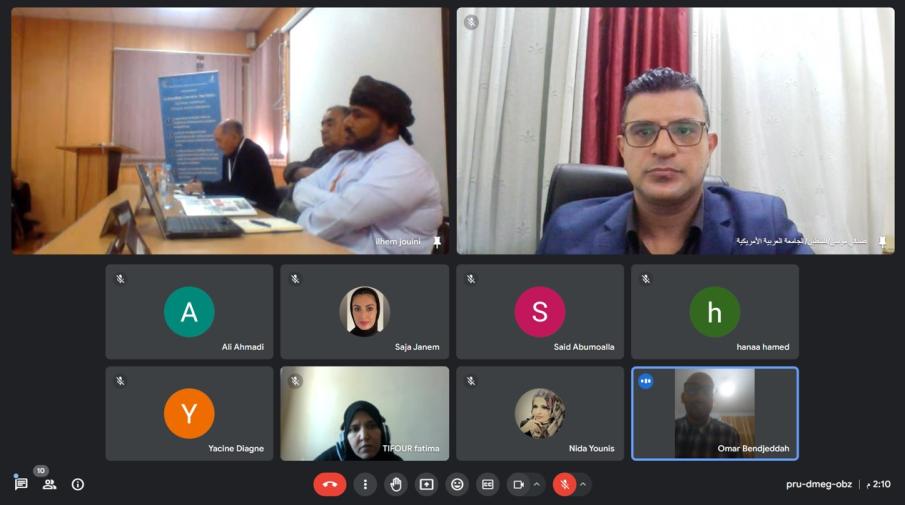The Arab American University participated in the events of the International Scientific conference “Media in the Post-Truth Era: Practicing Media Professions in an Information Perturbation Era,” which was held by the Institute of Journalism and News Sciences at Manouba University in Tunisia.
The Arab American University was represented at the conference by Dr. Said Abu Mualla, Head of the Digital Media Department at the Faculty of Modern Media, and Mr. Sudqi Mousa, Head of the Department of Arabic Language and Media at the Faculty of Arts and Education. Their participated was with a research paper titled “The Impacts of Information Perturbation on the Professional Performance of Palestinian Journalists in Their Coverage of the War against Gaza and the West Bank.”
The study aimed to determine the extent to which the information perturbation, which has spread since the beginning of the war against the Gaza Strip and the West Bank, reflects on the professional performance of Palestinian journalists, as perceived by them.
During his presentation of the research paper, Mr. Sudqi Mousa touched upon the peculiarity of Palestinian society, which is exposed to deep and continuous waves of components of Israeli political propaganda, a situation led by Israeli media (official, private, and anonymous, in Hebrew, Arabic, and other languages). This makes the broadcasts of this media and its platforms the biggest causes of Information perturbation, and thus Palestinian society becomes the most targeted by the state of information perturbation, which was deepened in the recent war by the Israeli occupation against Gaza and the West Bank.
The results of the study showed that “Palestinian journalists” are the most prominent sources of Palestinian information that journalists rely on while covering the war against Gaza and the West Bank, followed by Palestinian media, citizens, eyewitnesses, and official Palestinian sources, as well as international institutions, such as the United Nations, UNRWA, and the Red Cross. The “foreign media” came in last place as a source of information.
As for the parties that play an active role in the process of information perturbation, the results showed that “Israeli official authorities” are the ones that play the active role in first place, followed by media spokesmen for the Israeli occupation, Israeli social media networks and messaging applications, and Israeli parties (opposition or part of the government), Israeli media, articles and reports translated into Arabic, posts by activists on social media networks, as well as citizens’ posts on social media networks.
As for the most prominent challenges facing journalists in verifying the authenticity of information while covering the war against Gaza and the West Bank, “inability to exist at the place of the event” came first, followed by the lack of time, bunches of posts, difficulty in accessing reliable sources, the spread of misleading information on social media, and information bulk published about the war, the magnitude and continuity of the event, inability to exist at the place of the event, and the information conflict. The “lack of experience in verifying the authenticity of information” was the last place as a challenge in verifying the authenticity of information.
The results also revealed that journalists take a set of steps when dealing with misleading information in the war against Gaza and the West Bank, perhaps the most prominent of which is “verifying sources,” which comes in first place, followed by educating journalists or the public about the dangers of misleading information, using tools to filter out misleading information, verifying sources, and criticism of the text content and thinking about the logicality of the information, searching for counter-information, communicating with experts, using tools to verify the authenticity of the information, following up on verification initiatives, and participating in groups for journalists to verify the news. The item “ignoring information” came in last place as a step of dealing with misleading information.
Moreover, the results showed that the impact of information perturbation on the professional performance of journalists was represented by the formation of awareness of media ethics and the challenges of professional work among journalists, in the first place, in addition to the fact that information perturbation created an additional burden on the work of journalists, and as an issue that prompted the doubling of positive self-control on the published war related materials.
The results also showed that “verifying the authenticity of information from reliable sources” is the most prominent step that journalists take to maintain their professional performance, in addition to undertaking the tasks of writing balanced reports, presenting different points of view, avoiding expressing personal opinions, examining information before publishing, and communicating with Palestinian verification initiatives, using verification applications and ensuring the accuracy of data, disseminating information to groups of journalists and discussing information, as well as having discussions with journalists’ directors on doubtful information.
The conference was held at the Institute of Journalism and News Sciences at Manouba University in the capital, Tunis, over two days. Many researchers from various Arab, African and European countries participated in this conference.


